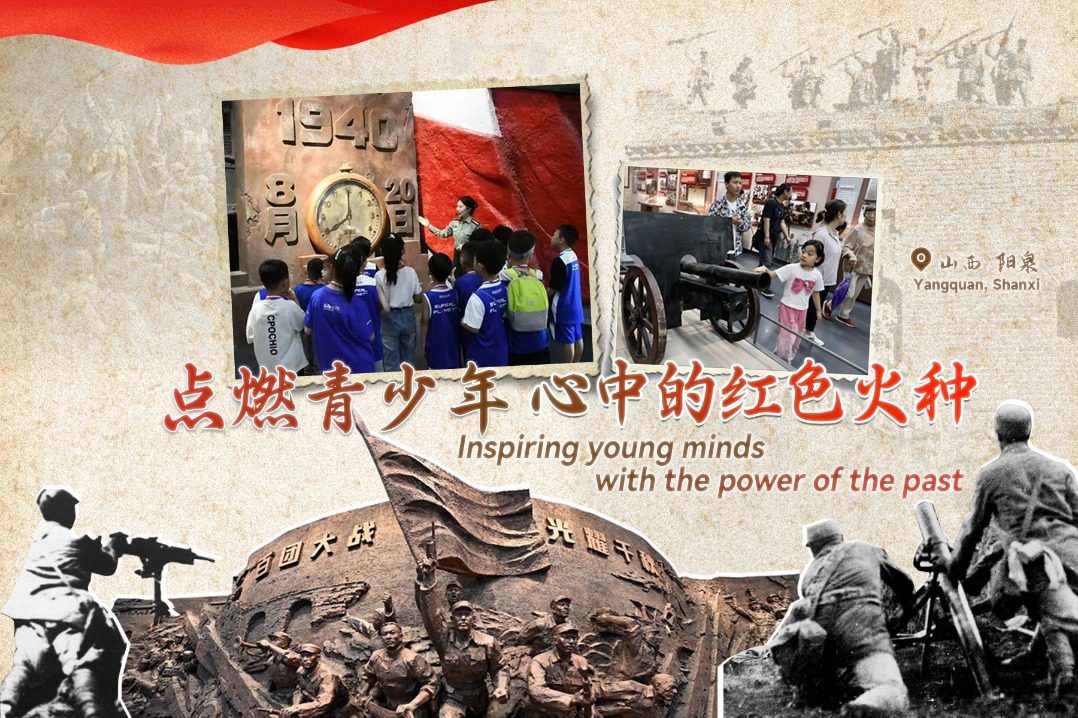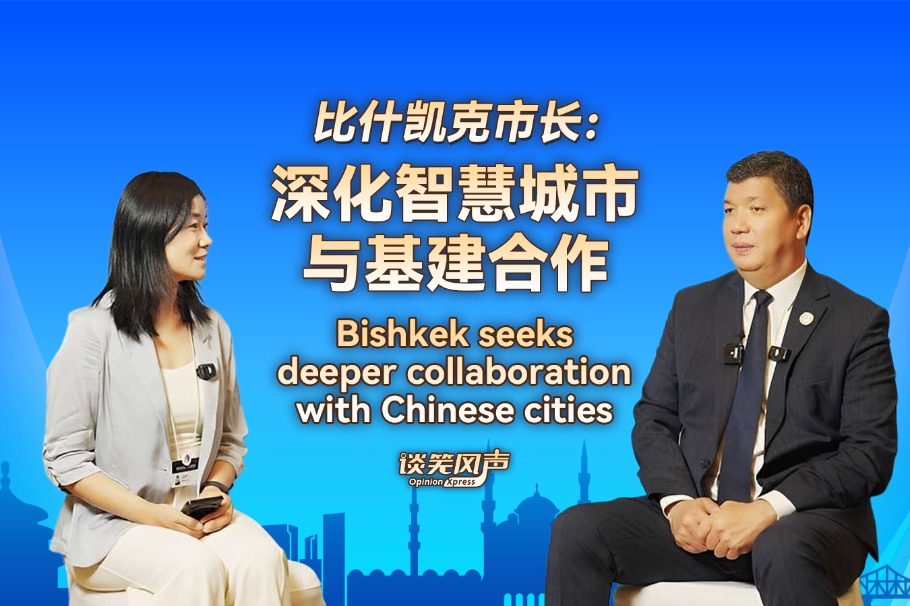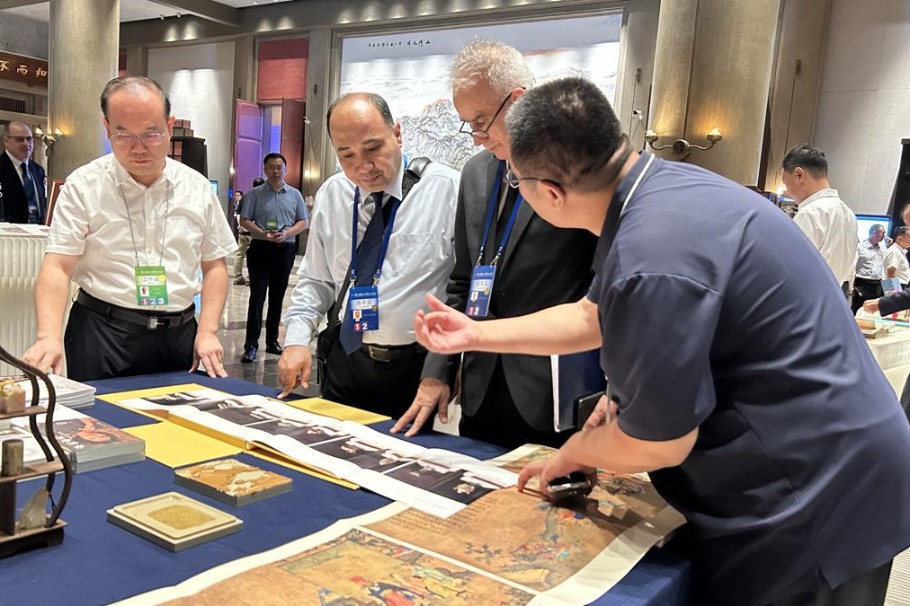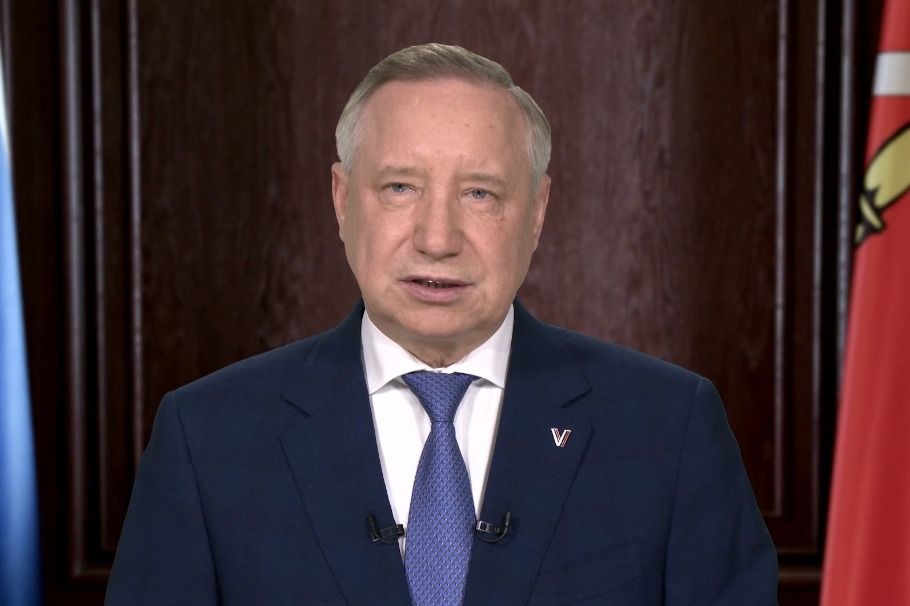'Shanghai Spirit' reflects strength and resilience


In the literary work The Nest of the Soul by contemporary Chinese writer Feng Jicai, the city of Tianjin emerges as more than just a setting — it becomes a character in its own right, shaping and influencing the protagonist's journey. Through the lens of Feng's personal experiences in his hometown, Tianjin is depicted as a place that not only provides familial love and friendship but also serves as a crucible of life's challenges and lessons. This narrative underscores the unique blend of historical richness, cultural heritage, technological advancements, and modernity that define Tianjin, offering readers a profound insight into the intricate tapestry of life and growth within the city.
It is here, on the banks of the Haihe River, that the 25th Meeting of the Council of Heads of State of the Shanghai Cooperation Organization will be held in autumn, under the theme: "Carrying forward the Shanghai Spirit: SCO in Action".
Feng's remark on the city of Tianjin echoes the essence of the "Shanghai Spirit" with all its vitality, a spirit marked by mutual trust, respect for diversity, and the pursuit of shared development.
The SCO has been adhering to the "Shanghai Spirit", and its goals are: to strengthen mutual trust, friendship and good-neighborliness among member states; to promote effective cooperation in politics, trade and economy, science and technology, culture, education, energy, transportation, environmental protection, and other fields; to jointly safeguard peace, security, and stability in the region; and to build a new, democratic, just, and rational international political and economic order.
The SCO represents a constructive diplomatic initiative that laid the foundation for a new global outlook on security and principles of mutual trust. As a concept in international relations, the "Shanghai Spirit" is a departure from confrontation and the Cold War mentality, advocating instead for universal humanistic values. This approach has resonated with many Eurasian countries experiencing unprecedented geopolitical turbulence.
Today, after 24 years of development, the SCO has expanded from six founding members to a "big SCO family" of 26 countries (10 full members, two observer states, and 14 dialogue partners). Documents adopted at its summits reflect the views of about 3.5 billion people — nearly half of the world's population — and thus carry significant weight. The SCO's developmental dynamics provide valuable insights into global political processes, which largely determine the objectives of international organizations and their decision-making logic.
The SCO continues to serve as a pillar of stability across the Eurasian continent despite the growing external threats. At the same time, it remains committed to expanding both its geographical reach and the depth of its multilateral cooperation.
At the recommendation of China, which assumed the rotating presidency of the SCO last year, 2025 was designated as the "Year of Sustainable Development". According to the presidency's action plan, more than 100 related events are scheduled for the occasion, many of which have already been held or are ongoing. The events cover not only traditional areas of cooperation — politics, security, economy and culture — but also other fields such as innovation, poverty reduction, food security, healthcare, green development, digital transformation and artificial intelligence.
The initiatives promoted by China align with the proposals of other member states, resulting in mutual enrichment. This highlights China's responsible role as a proactive participant in international affairs. China's political system, known for its decision-making efficiency, helps more effectively address the challenges faced by the SCO.
The organization, sensing the international climate, continues to attract new partners, and addresses emerging challenges not through conflict, but through the development of coordinated strategies, with Central Asia remaining its core.
President Xi Jinping's state visit to Kazakhstan in mid-June and the China-Central Asia Summit in Astana once again affirmed the long-term alignment of interests between Beijing and the region. Also, a new milestone in regional relations was reached by the signing of the treaty on eternal good-neighborliness, friendship and cooperation by China and the five Central Asian countries in Astana.
Although the SCO's geographic configuration has evolved due to the accession of new members, it still resembles a "sandwich" — with the Central Asian countries situated between China and Russia. Rich in natural resources and a crucial transit hub, Central Asia needs China's investments and technology. Accordingly, the SCO is more focused on its economic agenda today.
During his meeting with SCO Secretary-General Nurlan Yermekbayev on July 1, 2025, Kazakh President Kassym-Jomart Tokayev emphasized that Kazakhstan attaches great importance to enhancing the SCO's role as an effective and balanced international organization. He also praised China's current chairmanship and offered support for further improving the SCO's mechanisms.
Ensuring that the SCO serves as a bastion of stability amid global intimidation and power politics is a shared responsibility of all its member states. Recent developments in the Middle East are sounding the death knell of international law, and the standards established after the end of World War II in 1945 should not be trampled.
This year also marks the 80th anniversary of the victory in the World Anti-Fascist War (World War II) and the founding of the United Nations. China has proposed including references to these historic milestones in the final documents of the upcoming SCO summit in Tianjin — and supports the international system centered on the United Nations.
More important, the SCO is more than a talk shop; it is a platform for action. Its robust institutional architecture allows for more effective cooperation, offering ample tools to transform quantitative growth into qualitative progress.
The SCO, uniting the largest countries across Eurasia under the guidance of the "Shanghai Spirit", has become a platform for rational goal-setting and pragmatic dialogue amid global turbulence. For SCO member states and partners alike, this is the time to work together and view cooperation as a shared opportunity to expedite development based on mutual trust and real, tangible interests.
The author is a political scientist from Kazakhstan and head of the World of Eurasia, a public foundation, and former editor-in-chief of several Kazakh socio-political newspapers and magazines.
The views don't necessarily reflect those of China Daily.
The views don't necessarily reflect those of China Daily. If you have a specific expertise, or would like to share your thought about our stories, then send us your writings at opinion@chinadaily.com.cn, and comment@chinadaily.com.cn.

































